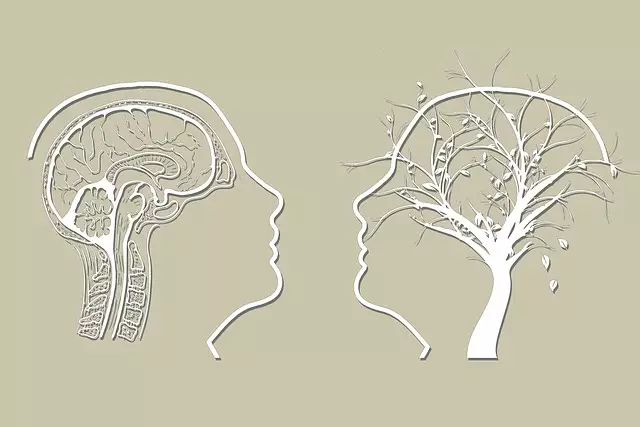Mental wellness self-assessment tools, pioneered by the Kaiser Permanente mental health center in Golden, are vital for identifying and addressing psychological needs. These tools empower individuals to evaluate their mental health, improve self-esteem, and enhance coping mechanisms against stress and burnout. By integrating evidence-based practices, research on trauma services, and work-life balance strategies, these assessments offer personalized support for better patient outcomes. Future developments in AI, machine learning, and VR promise even more effective, tailored, and relevant tools for mental wellness care.
In today’s fast-paced world, prioritizing mental wellness is more crucial than ever. This article explores the development of self-assessment tools designed to enhance mental well-being, with a special focus on the role of the Kaiser Permanente Mental Health Center in Golden, Colorado. We delve into the understanding behind these tools, their key components, and the integration of evidence-based practices. Additionally, we discuss future improvements, ensuring these resources remain effective and adaptable to evolving needs.
- Understanding the Need for Mental Wellness Self-Assessment Tools
- The Role of Kaiser Permanente Mental Health Center in Developing Effective Tools
- Key Components of a Comprehensive Self-Assessment Framework
- Integrating Evidence-Based Practices into Assessment Design
- Future Directions and Continuous Improvement for Mental Wellness Tools
Understanding the Need for Mental Wellness Self-Assessment Tools

Mental wellness self-assessment tools play a pivotal role in identifying and addressing individual psychological needs, especially in today’s fast-paced world where stress and anxiety are prevalent. These tools are essential resources for individuals seeking to improve their mental health and overall well-being, much like those who visit the Kaiser Permanente mental health center in Golden. By providing an opportunity for self-reflection and evaluation, they empower people to take charge of their mental wellness journey.
The need for such assessments is particularly pressing given modern lifestyle factors that contribute to mental health issues, including burnout prevention. Many individuals struggle with work or school pressures, leading to chronic stress and potential mental health disorders. Community outreach program implementations targeting these issues can benefit greatly from self-assessment tools. Moreover, focusing on aspects like self-esteem improvement through these assessments can significantly enhance an individual’s resilience and coping mechanisms.
The Role of Kaiser Permanente Mental Health Center in Developing Effective Tools

The Kaiser Permanente Mental Health Center in Golden has played a pivotal role in developing effective mental wellness self-assessment tools, guided by its commitment to advancing mental health care and its Mind Over Matter principles. The center’s expertise lies in integrating comprehensive assessments with evidence-based interventions, ensuring that individuals receive tailored support. By drawing on the latest research in trauma support services and risk assessment for mental health professionals, Kaiser Permanente has been able to create tools that are both precise and compassionate. These innovations not only enhance diagnostic accuracy but also foster more effective treatment planning, contributing to improved outcomes for patients across the spectrum of mental wellness concerns.
Key Components of a Comprehensive Self-Assessment Framework

A comprehensive self-assessment framework for mental wellness should incorporate several key components to effectively gauge and improve an individual’s psychological well-being, especially in high-pressure environments like a Kaiser Permanente mental health center Golden. Firstly, it must include questions or metrics that evaluate stress levels and management techniques, as these are crucial indicators of overall mental health. This can be achieved by integrating Stress Management Workshops Organization-approved methods to assess how individuals cope with stressful situations, identify triggers, and gauge their resilience.
Additionally, the framework should delve into burnout prevention strategies, a critical aspect often overlooked but highly relevant for healthcare providers. By incorporating questions that explore work-life balance, self-care practices, and emotional regulation, the assessment can offer valuable insights into potential areas of concern. This knowledge allows for personalized recommendations on Stress Reduction Methods, enabling individuals to proactively address mental health challenges before they escalate, much like a well-oiled machine smoothly navigating through intricate pathways at a bustling healthcare center.
Integrating Evidence-Based Practices into Assessment Design

Integrating Evidence-Based Practices into Assessment Design is a pivotal step in developing effective self-assessment tools for mental wellness. At the Kaiser Permanente mental health center Golden, professionals leverage research-backed strategies to create assessments that accurately gauge an individual’s psychological state and provide actionable insights. This approach ensures that the tools are not only valid but also reliable, fostering trust among users and facilitating meaningful interventions.
By incorporating best practices from organizations like the Stress Management Workshops, which emphasize Mental Health Awareness, these assessments focus on holistic well-being. They go beyond traditional symptoms to assess coping mechanisms, resilience, and stress reduction methods, offering a comprehensive view of mental health. This integrated approach not only enhances assessment accuracy but also empowers individuals to take control of their mental wellness through targeted self-reflection and personal growth.
Future Directions and Continuous Improvement for Mental Wellness Tools

As technology continues to advance, there is immense potential for the development of innovative mental wellness self-assessment tools. Future iterations could incorporate artificial intelligence and machine learning algorithms to provide personalized feedback and recommendations, adapting to an individual’s evolving needs. By integrating user data and preferences, these tools can offer a more tailored experience, enhancing their effectiveness. Additionally, virtual reality (VR) technology could be leveraged to create immersive experiences that simulate real-life scenarios, aiding in the assessment and practice of coping strategies.
Continuous improvement is key to ensuring these tools remain relevant and impactful. Collaborating with mental health professionals at renowned centers like the Kaiser Permanente mental health center in Golden can provide valuable insights and validate the tool’s accuracy and utility. Incorporating evidence-based practices such as Mental Health Education Programs Design, Positive Thinking, and Compassion Cultivation Practices can enhance their therapeutic value. Regular updates based on user feedback and emerging research will ensure these tools remain dynamic and aligned with the latest mental health trends.
The development of mental wellness self-assessment tools is a crucial step towards empowering individuals to take charge of their mental health. As highlighted by the expertise at the Kaiser Permanente Mental Health Center in Golden, these tools play a pivotal role in early identification and intervention, enabling proactive management of mental well-being. By integrating evidence-based practices and comprehensive frameworks, such as those discussed in this article, we can create accessible and effective resources that positively impact individuals’ lives. Continuous improvement and research will ensure these tools remain up-to-date and relevant, fostering better mental health outcomes for a wider population.






